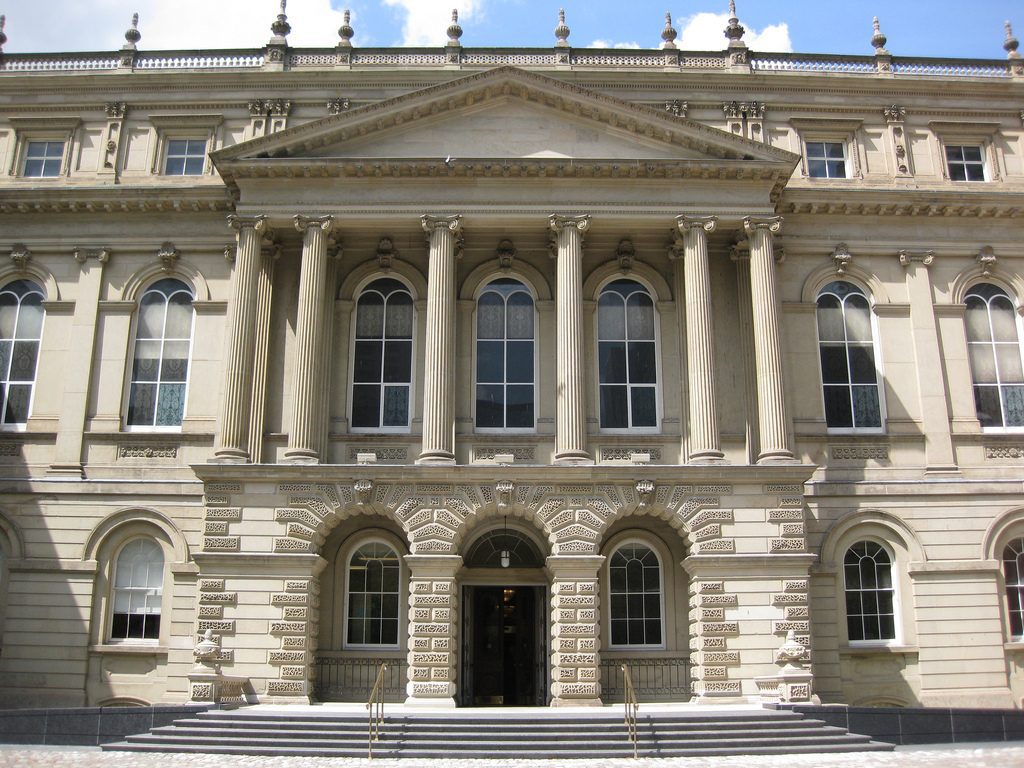Ontario and Saskatchewan are investing millions of public dollars into a legal battle to block the federal government from implementing a Nobel-prize-winning policy tool to address climate change: a price on carbon pollution. This short-sighted action could destroy Canada’s already slim chance of meeting international commitments to reduce greenhouse gas emissions.
To help make sure Canada does its fair share to avert the most catastrophic impacts of climate change, Environmental Defence is teaming up with the Canadian Environmental Law Association to join as intervenors in the upcoming court cases in both provinces.
Why are we intervening?
It’s simple: we need strong tools to reduce carbon pollution in Canada, and the federal government has clear power to implement them. Without the ability to step in and take action to fight climate change when provinces refuse to act, Canadians face a deepening crisis with no clear solution.
The main question the court will answer is whether the federal government has the power to make laws to reduce carbon pollution and mitigate climate change. As outlined in our submission to the court, the answer to this question will have “far-reaching environmental and constitutional law implications that will impact the Canadian public. The resolution of this issue may fundamentally impact the ability of Parliament to act under the Constitution Act, 1867 to effectively address climate change for the protection of public health and environmental quality.”
In non-legal speak, this means that the battle is much bigger than whether or not to put a price on pollution. The federal government is fighting for the power to address one of greatest global threats we face, at a fundamental tipping point in our history. As extreme weather ramps up, forcing people from their homes with floods, fires, and rising sea levels, the federal government can’t just sit by and watch provinces drag their heels and refuse to take action. The time to act is now.
Who is arguing what?
First, the federal government has argued that greenhouse gas emissions are a matter of national concern, and Parliament has jurisdiction to legislate for the “peace, order, and good government of Canada” under the Constitution. Federal action is necessary to make sure that inaction from some provinces does not hurt the entire country.
Our intervention adds another argument – that legislation to price pollution is valid under the federal government’s criminal law power because it “aims to prevent environmental ills that pose threats of serious or irreversible damage and has a clear and preventive purpose.” Basically, the problem is so serious that Parliament can seek to suppress it as an “evil.” We also argue that the federal government can take action through their jurisdiction over trade and commerce, since the pricing system gives economic value to emissions credits and a market for facilities to trade those credits.
The Ontario and Saskatchewan governments argue (among other things) that carbon pricing is not within the federal government’s constitutional jurisdiction because greenhouse gas emissions are so broad in scope, and emitted by so many sectors, that giving the federal government power to regulate them would shift so much power away from provinces that the very balance of federalism would be upset. Interestingly, this argument’s emphasis on the pervasive scope of greenhouse gas emissions seems to acknowledge that this is a problem needing solutions from every sector.
Is this really about carbon pricing?
A price on carbon pollution is only one policy of many needing swift implementation if Canada hopes to do its fair share to keep warming well below two degrees Celsius. We would fight (and may have to) with the same gusto to protect and strengthen federal policies on clean fuels, methane emissions, and other less notorious policies. All of these tools are necessary, including a price on carbon pollution. In fact, the impact all of these policies combined is still not enough to meet Canada’s international commitments to reduce emissions. This is why it’s so important for both the federal and provincial governments to use every tool in the toolbox – because Canada needs to move on quickly to developing new, stronger tools.
Opponents of a price on carbon have raised these other policies as evidence that a price isn’t needed – instead, they argue, Canada can reach its climate goals using strong alternatives. This argument falls apart quickly because these opponents have not proposed any strong alternatives. In fact, in Ontario, almost every one of these alternatives has recently been cancelled, including programs to make buildings more energy efficient, and programs to help Ontarians transition to renewable energy, electric vehicles, and other climate-friendly solutions. Ontario’s new Environment Plan literally moves backwards, weakening emissions reduction targets with no clear action plan to meet even these weaker goals.
What Ontario and Saskatchewan are really fighting for is the constitutional right to veto a tool to hold polluters accountable for their carbon emissions. This would be catastrophic for Canada’s efforts to address climate change, which is why it’s so important for us to defend the right of the federal government to step in.
Environmental Defence has countless years of experience advocating for effective climate action across Canada. We cannot stay silent on such an important decision at such a critical time for climate action. It’s time to move forward to address the climate crisis, with or without the naysayers.









